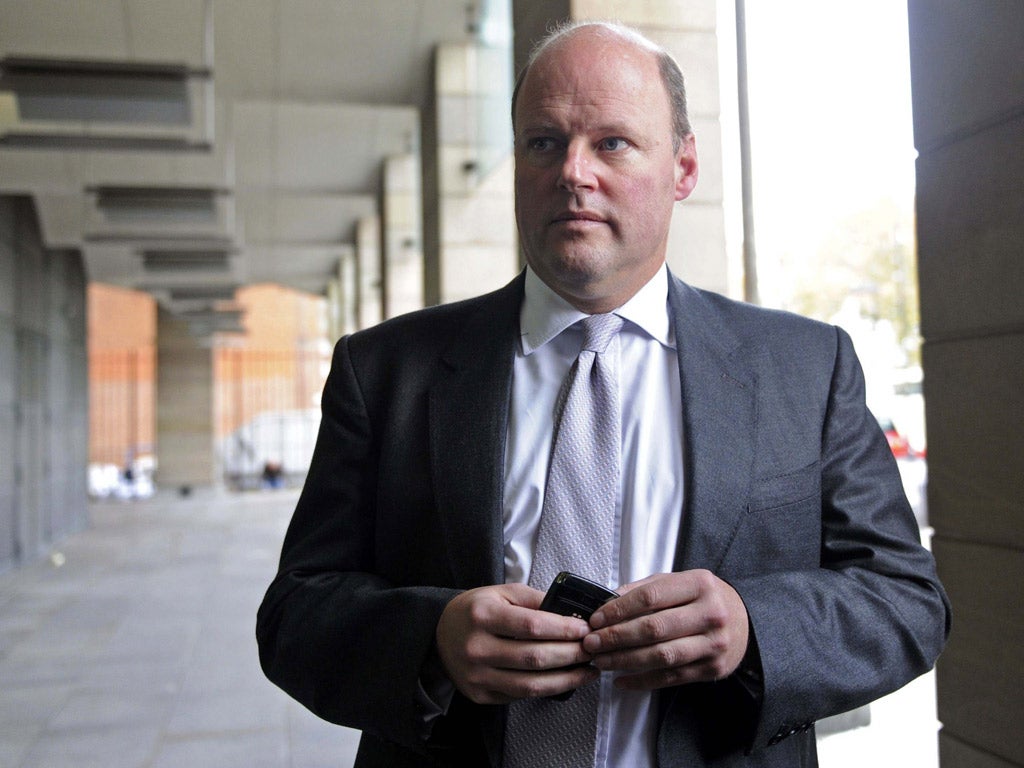RBS boss bows to pressure and gives up £1m bonus
Threat of Commons vote on pay may have proved final straw for RBS chief executive

Your support helps us to tell the story
From reproductive rights to climate change to Big Tech, The Independent is on the ground when the story is developing. Whether it's investigating the financials of Elon Musk's pro-Trump PAC or producing our latest documentary, 'The A Word', which shines a light on the American women fighting for reproductive rights, we know how important it is to parse out the facts from the messaging.
At such a critical moment in US history, we need reporters on the ground. Your donation allows us to keep sending journalists to speak to both sides of the story.
The Independent is trusted by Americans across the entire political spectrum. And unlike many other quality news outlets, we choose not to lock Americans out of our reporting and analysis with paywalls. We believe quality journalism should be available to everyone, paid for by those who can afford it.
Your support makes all the difference.Stephen Hester, head of the Royal Bank of Scotland, gave way to heavy political pressure last night to forego his £963,000 bonus.
The final straw for the RBS chief executive appears to have been the looming threat of a vote in the House of Commons condemning the Government for failing to block the payment.
He is reported to have feared becoming "a pariah" over the controversy.
Just a few hours before Mr Hester made his decision known, Ed Miliband announced he would force a Commons vote at the first opportunity. Labour strategists were anticipating that a substantial number of Tory and Lib Dem MPs would support them, giving them a chance of defeating the Government.
This would have created an acute embarrassment for the board of RBS, who would have been in conflict with Parliament and public opinion, when more than four fifths of the bank's shares are held by the Government. Labour also intended to use the row over Mr Hester's bonus to humiliate Prime Minister David Cameron, who had previously promised that he would block any bonus of £1m or more.
Mr Miliband believed that the issue had become a focus for public anger at irresponsibility in the boardroom and showed up a weakness in Mr Cameron's leadership. On his blog last night, the Labour leader claimed: "He's been found out on this issue. He was asked if he would veto £1m bonuses at RBS. He replied: 'The short answer is yes.' Having said that, it is ridiculous for him either to suggest he cannot do anything about it now – or pretend he has achieved that pledge by ensuring Mr Hester's bonus comes just short of seven figures.
"He and George Osborne are caught between what they really believe and what people think. They do not give a monkey's about tackling irresponsible capitalism or indeed the bonus culture."
The news came after two Cabinet ministers were quizzed on the bonus in television interviews yesterday.
The Works and Pensions Secretary, Iain Duncan Smith, and the Treasury Chief Secretary, Danny Alexander, both insisted it was not the Government's role to decide how much Mr Hester is paid, though they hoped he would forego his bonus. London Mayor, Boris Johnson, said it was "very peculiar" that a bank that is almost entirely state owned rewarded executives on this scale. He said he hoped the RBS row would not affect the whole financial services industry.
"It would be absolutely nuts to think that they are all somehow tarred with the brush of the fat cats who take excessive bonuses," he said.
Mr Duncan Smith said: "The contract that we inherited from Labour meant that the board takes the decision on this. You can't interfere and tell them what to do. And if we didn't like that, the only option would be to get rid of the board. Now if you do that, imagine what would happen in the banking sector and imagine what would happen to RBS. You'd have chaos."
Join our commenting forum
Join thought-provoking conversations, follow other Independent readers and see their replies
Comments